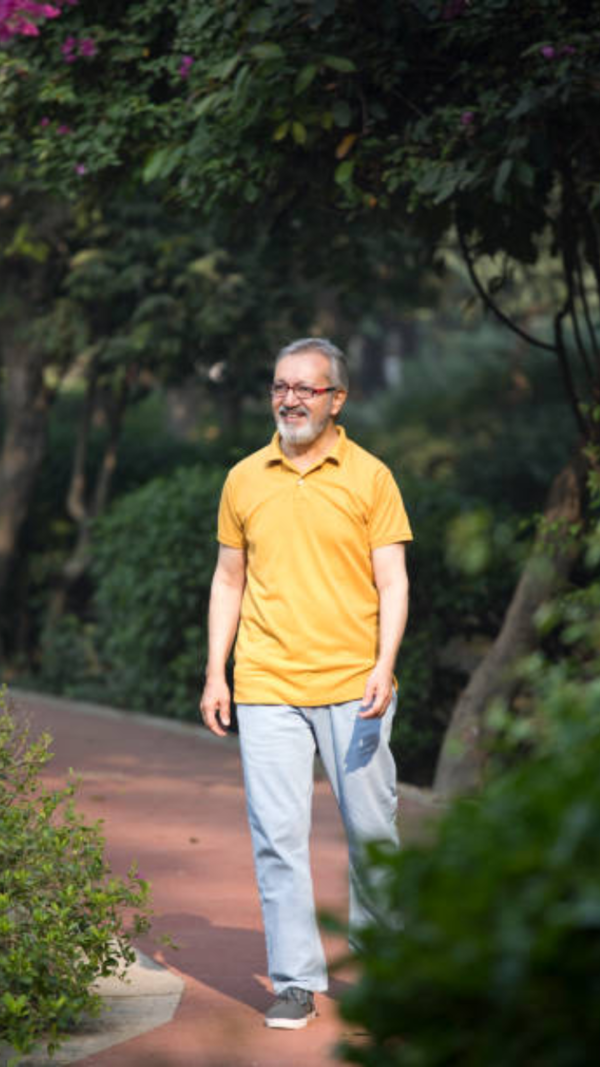- News
- World News
- UK News
- British PM Keir Starmer dodges question on losing Muslim votes, instead says...
Trending
British PM Keir Starmer dodges question on losing Muslim votes, instead says...
When asked about Labour’s relationship with British Muslims, he said to an ITV News journalist: “Many people who never voted for Labour, they voted for Labour for the first time. So, we now hold seats in parts of the country that have never had a Labour MP before.This is an incredibly strong mandate. Of course, whenever we are not able to secure votes, we are concerned about that. But this is a clear mandate for change, for renewal, for a different way of doing politics, the return of politics to service. The days of self-entitlement and self-interest are over."

When asked about Labour’s relationship with British Muslims, he said to an ITV News journalist: “Many people who never voted for Labour, they voted for Labour for the first time. So, we now hold seats in parts of the country that have never had a Labour MP before.This is an incredibly strong mandate. Of course, whenever we are not able to secure votes, we are concerned about that. But this is a clear mandate for change, for renewal, for a different way of doing politics, the return of politics to service. The days of self-entitlement and self-interest are over."
Labour won a historic mandate but there’s one group that the party has not performed well with: British Muslims. While in Wales, the new UK Prime Minister Keir Starmer was asked about the relationship between Labour and British Muslims, he dodged the question directly.
When asked about Labour’s relationship with British Muslims, he said to an ITV News journalist: “Many people who never voted for Labour, they voted for Labour for the first time.So, we now hold seats in parts of the country that have never had a Labour MP before.This is an incredibly strong mandate. Of course, whenever we are not able to secure votes, we are concerned about that. But this is a clear mandate for change, for renewal, for a different way of doing politics, the return of politics to service. The days of self-entitlement and self-interest are over.I am really pleased to put a strong team on the pitch to start our work. There is no disputing the mandate we have, that it is a mandate for change, for renewal…”
Reacting, Labour MP Apsana Begun called it an awful response and said it 'lacks any acknowledgement of the need to build trust among British Muslims'.
A video also went viral in which Starmer appears to be questioned about Palestine by a bunch of youngsters in a football locker room.
Muslims make up about 6.5% of the population in England and Wales, around 2% in Scotland, and 1% in Northern Ireland. In the 2019 election, over 80% of Muslims reportedly voted for Labour. However, research conducted shortly before the 2024
Labour's return to power after 14 years was marked by a memorable victory, but it came with setbacks, particularly in constituencies with higher Muslim representation. One significant upset was Labour frontbencher Jonathan Ashworth's loss to Shockat Adam in Leicester South by fewer than 1,000 votes. In Leicester East, despite a generally poor performance, the Conservatives flipped the seat, with Shivani Raja defeating the Labour candidate, overcoming notable figures like Keith Vaz and Claude Webbe.
According to the BBC, Labour's vote share dropped by an average of 11 points in constituencies where more than 10% of the population identify as Muslim. In Ilford North, shadow health secretary Wes Streeting saw his lead reduced significantly, from 9,000 to 528 votes.
In four seats with large Muslim populations, Labour lost three to Independent candidates and one to a Conservative. In Birmingham Perry Barr, Khalid Mahmood was defeated by independent Ayoub Khan by 507 votes. In Dewsbury and Batley, Independent Iqbal Mohamed beat Labour’s Heather Iqbal. In Blackburn, Independent Adhan Hasnain narrowly won over Labour’s Kate Hollern by 132 votes.
Some Labour members barely held on to their seats. In Ilford North, Wes Streeting retained his seat by just 528 votes against Leanne Mohamad, the granddaughter of Palestinian refugees. In Birmingham Ladywood, Shabana Mahmood narrowly defeated TikTok star Akhmed Yakoob.
Keir Starmer had faced criticism for stating that Israel had the “right” to cut off water and energy to Gaza, though he later clarified that he meant self-defence. His lead was reduced to 7,312 votes against pro-Gaza Independent Andrew Feinstein. Labour also lost in traditional strongholds like Islington North, where Jeremy Corbyn, now an Independent, defeated the Labour candidate by 7,000 votes.
Starmer's attempt to adopt a more nuanced stance than his predecessor on various issues has led to backlash from communities traditionally considered Labour supporters, such as Muslims and Leftists.
When asked about Labour’s relationship with British Muslims, he said to an ITV News journalist: “Many people who never voted for Labour, they voted for Labour for the first time.So, we now hold seats in parts of the country that have never had a Labour MP before.This is an incredibly strong mandate. Of course, whenever we are not able to secure votes, we are concerned about that. But this is a clear mandate for change, for renewal, for a different way of doing politics, the return of politics to service. The days of self-entitlement and self-interest are over.I am really pleased to put a strong team on the pitch to start our work. There is no disputing the mandate we have, that it is a mandate for change, for renewal…”
Reacting, Labour MP Apsana Begun called it an awful response and said it 'lacks any acknowledgement of the need to build trust among British Muslims'.
Guardian columnist Owen Jones wrote: “Astonishing stuff. Keir Starmer is asked about British Muslim disillusionment with the Labour party. He doesn't even pretend to show he's interested. Muslim voters appear to have minimal relevance as far as he's concerned.”
A video also went viral in which Starmer appears to be questioned about Palestine by a bunch of youngsters in a football locker room.
Muslims make up about 6.5% of the population in England and Wales, around 2% in Scotland, and 1% in Northern Ireland. In the 2019 election, over 80% of Muslims reportedly voted for Labour. However, research conducted shortly before the 2024
indicated that this support had decreased by up to 20 percentage points nationwide, with some constituencies experiencing an even more significant dip in Muslim support for Labour. This is in stark contrast to Jews voting for Labour. In 2019, the proportion of British Jews (approximately 0.5% of the population) who voted for the Labour Party under Jeremy Corbyn is believed to have plummeted to single digits. However, research indicates that this figure could have risen back to over 40% since then.
Labour's return to power after 14 years was marked by a memorable victory, but it came with setbacks, particularly in constituencies with higher Muslim representation. One significant upset was Labour frontbencher Jonathan Ashworth's loss to Shockat Adam in Leicester South by fewer than 1,000 votes. In Leicester East, despite a generally poor performance, the Conservatives flipped the seat, with Shivani Raja defeating the Labour candidate, overcoming notable figures like Keith Vaz and Claude Webbe.
According to the BBC, Labour's vote share dropped by an average of 11 points in constituencies where more than 10% of the population identify as Muslim. In Ilford North, shadow health secretary Wes Streeting saw his lead reduced significantly, from 9,000 to 528 votes.
In four seats with large Muslim populations, Labour lost three to Independent candidates and one to a Conservative. In Birmingham Perry Barr, Khalid Mahmood was defeated by independent Ayoub Khan by 507 votes. In Dewsbury and Batley, Independent Iqbal Mohamed beat Labour’s Heather Iqbal. In Blackburn, Independent Adhan Hasnain narrowly won over Labour’s Kate Hollern by 132 votes.
Some Labour members barely held on to their seats. In Ilford North, Wes Streeting retained his seat by just 528 votes against Leanne Mohamad, the granddaughter of Palestinian refugees. In Birmingham Ladywood, Shabana Mahmood narrowly defeated TikTok star Akhmed Yakoob.
Keir Starmer had faced criticism for stating that Israel had the “right” to cut off water and energy to Gaza, though he later clarified that he meant self-defence. His lead was reduced to 7,312 votes against pro-Gaza Independent Andrew Feinstein. Labour also lost in traditional strongholds like Islington North, where Jeremy Corbyn, now an Independent, defeated the Labour candidate by 7,000 votes.
Starmer's attempt to adopt a more nuanced stance than his predecessor on various issues has led to backlash from communities traditionally considered Labour supporters, such as Muslims and Leftists.
End of Article
FOLLOW US ON SOCIAL MEDIA











